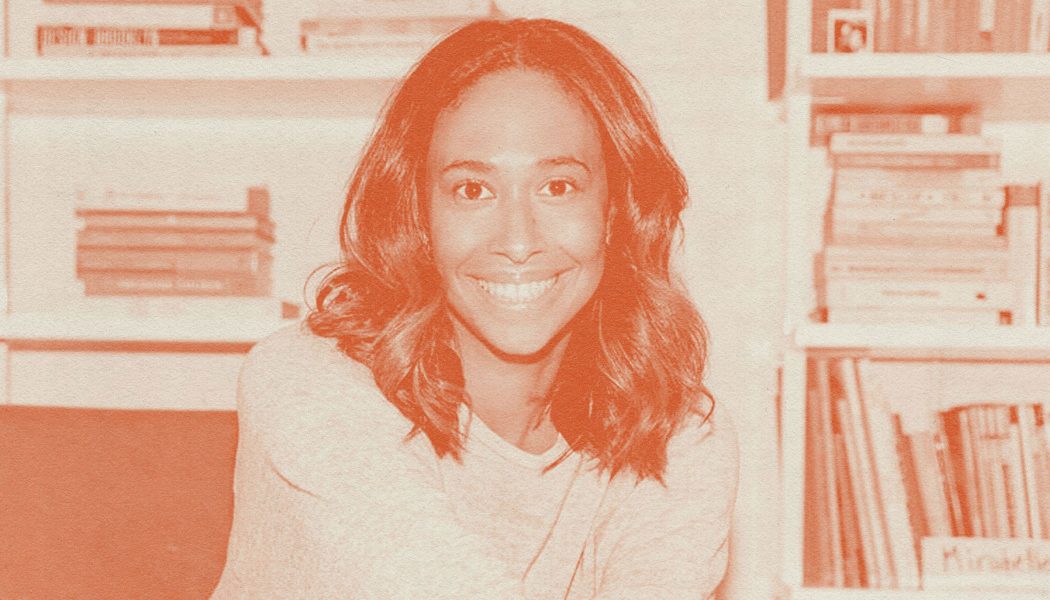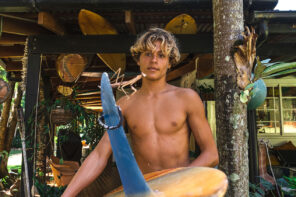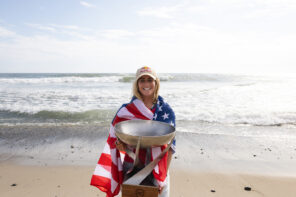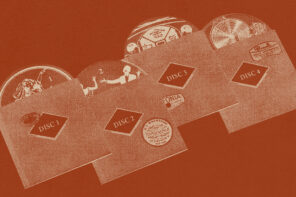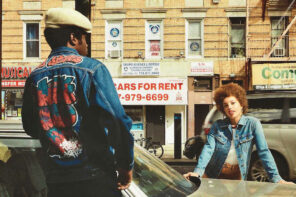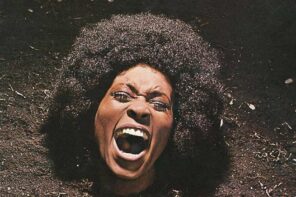Founder of SurfearNEGRA GiGi Lucas interviews founder of Native New Yorker (and actual native New Yorker) Britt Morgan-Saks.
@living_inthelight x @bmorgansaks
Britt Morgan-Saks has dipped her toes in close to every industry out there, from running artist and industry relationships for Spotify to creating her own businesses advising other businesses, all within the span of six years. Her company Native New Yorker is a boutique creative and business advisory, helping brands, companies, and individuals creatively solve problems, while build ing and scaling these businesses. Balancing this, a move down the east coast, and being a mother of three, is made possible by her ambitious attitude and her energy. Connected to GiGi through mutual friends, the two share passions for racial and gender equality and creating a better world for others. GiGi, cereal connoisseur and the founder of the nonprofit, SurfearNEGRA, advocates for gender and cultural diversity in the surf community. If they’ve taught us one thing, it’s that you cannot stop a woman on a mission.
GiGi: You are a native New Yorker—hence the name of your creative and business advisory…we’ll get to that later. Tell me about what it was like growing up in New York.
Britt: I’m often asked what it’s like to be a native New Yorker, but I don’t have a point of comparison. It is the only thing I know. I’ve always appreciated being from New York. I think one of the things I love about New York and I think has really shaped me—and certainly my business—allowing me to see that there are so many different types of people in the world. People who have a natural curiosity about the world who are creative, have a certain point of view, who have opinions, who hustle, who have a drive.
I had friends who were on the Upper East Side, I had friends from Brooklyn. I had friends from Harlem. I had friends from all different walks of life. And I think that’s unique to New York. I could go from block to block and neighborhood to neighborhood and interact with so many different types of people. It was a wonderful experience. It’s in my bones.
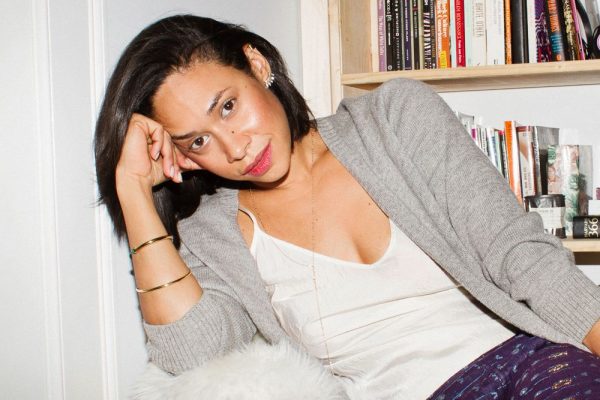
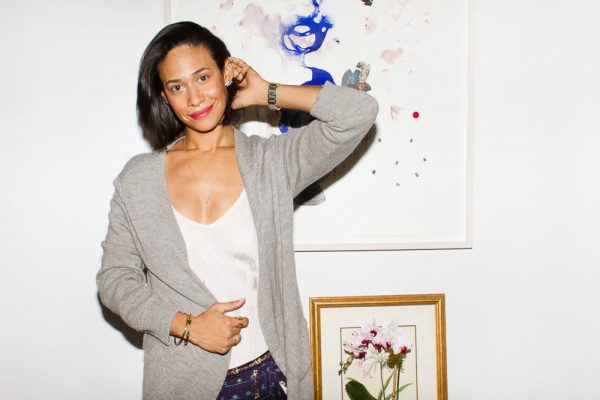
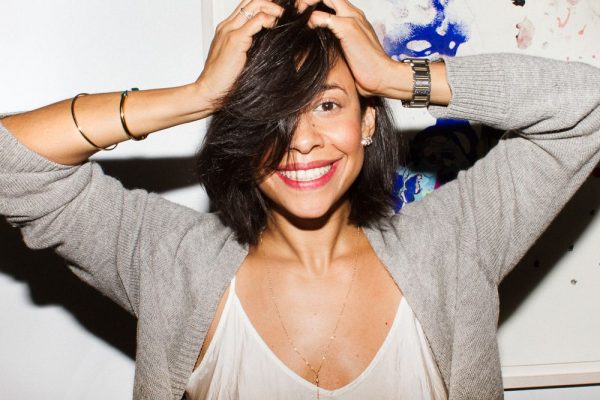
GiGi: It makes up your entire DNA, but yet you decided to leave to go to school and you attended Harvard University. So did you always have those Ivy League aspirations or was it something that just kind of happened?
Britt: No. My mother is a Jamaican immigrant and is also an educator, so education was always prioritized. I did a lot of extracurriculars. I was a dancer. I was on the track team. I wrote. I’m also incredibly type A, I’m very competitive. I can be very focused. And that was definitely the sort of track that my very intense, Jamaican immigrant mom had for me.
I actually didn’t want to go to Harvard at all. But my mom said, “You’re applying to the Ivys and that’s what I’ll pay for.” No pressure. Right? But that’s just how I was raised. So when I got into Harvard, I was so disappointed because I actually didn’t want to go. And I will reluctantly say that my mother was right. I deeply appreciate the experience and education that Harvard afforded me; however, I do firmly believe that education is what you make of it. Natural curiosity, drive, ambition, intelligence are more important than a college or university brand name. If you are naturally curious, if you have a drive, if you’re intelligent, if you want to learn, if you have ambition, you can go to school anywhere. You can also be very well-educated or be really intelligent and not go to school at all.
GiGi: Amazing. So, you came out of Harvard and did a couple of things, but you started off in the music industry, is that correct?
Britt: It is. I was definitely an atypical Harvard student. Because a lot of people ended up, I would say, on a more traditional path—finance or pre-med or consulting. And that was not at all what I wanted to do, not even slightly. And I think it made me a better sort of networker. I had to actually work a little bit harder to connect with the people that would help me get to the places that I wanted to go professionally. I always knew that I wanted to work in music. At that time, you didn’t necessarily go to Harvard to go work in the music business. After graduating, I actually interned at Def Jam which was something I always wanted to do. And I wanted my own apartment, so I ended up bartending several days a week after I would have my internship at Def Jam so that I could pay my rent and pay my school loans. So yes, my first job was bartending in an Irish bar in the East Village while I interned at Def Jam.
I ended up working for a woman named Amy Sacco who owned a really famous nightclub called Bungalow 8. So my career went from the music business to hospitality, which is why I say my professional trajectory has been a long and winding road. But I was always working with really creative people who were like the best at what they did. Then I found myself a couple of years later back in the music business as a music publisher for Sony where I got to work with lots of different types of artists.
I guess I always believe that I can do the thing. And if I don’t know how to do a particular thing, like I will figure out how to do it. I’ll find a way to learn. And I just believed that I could do it. Like I’m just doing it.
GiGi: So you started off in these incredible roles—and this is the thing about New York. You were at Sony, but then I remember talking about the evolution in music. Tell us about how you got to Spotify.
Britt: I was really fortunate to get to work as a music publisher. Music publishing is such a wonderful hybrid of both creative and business skills. I was able to professionally develop both sides of my brain. I then got this amazing super highly coveted job that I had never done before. But I convinced everyone I could learn music publishing. They took a shot and they gave me a chance. This was around 2006, and the music business was really impacted by piracy, and looming in the distance were streaming businesses.
I saw how the business was kind of changing and moving into a different space. When I got my first big break in music publishing, it was about revenue based on traditional sales. So when that traditional revenue stream started to shift and dry up, everyone freaked out. Physical album sales really went off a cliff and I just started looking around at what was emerging and I was paying a lot of attention to streaming services.
And I was in a meeting while I was at Sony, someone brought up Spotify. I just paid attention and I started reading about Spotify causing the Swedish music industry to boom and I started researching. I was interested in these shifts in paradigms and in consumption. So I relentlessly pursued working at Spotify specifically.
And I had a friend, a fellow Harvard alum, who was in the music business and had a band in college. I knew him to be an early adopter in the digital and streaming spaces. And so I called him up and I said, “Hey, what do you think about this company, Spotify?” And he’s like, “Well, I’m actually their artists and repertoire”—bringing the artists’ perspective to everything that we do.
And I said, “Okay, well, great. I’m going to come and work with you.” I have a habit of doing that. I believed Spotify was the future of the business, but that there would be an inherent mistrust/distrust from the artist community because of historically fraught relationships with technology platforms. My goal was to leverage the relationships I’d established in the traditional business in order to bridge this new frontier. This is in 2011. I was one of the few record executives at the time who looked like I do—who was a black woman who signed Flight of the Conchords and Sara Bareilles. That was very rare at that time.
I got to see Spotify early. And it felt like magic. I worked there for almost four years. And I helped to build the artists’ team, which is now like hundreds and hundreds of people. I like to be part of companies, businesses, ideas, things, movements that are pushing culture forward. That’s what really drives me. And if I get to work with really brilliant people who are also on that mission, that makes it even better.
GiGi: So commercial break. In this moment in time, can you think of one song that kind of summed up the energy and the vibe of this season in your life that we’re talking about right now?
Britt: I know so much about music and so little about music. My personal soundtrack is always the same. I’m always listening to the first Biggie album, cliché for New York, I know.

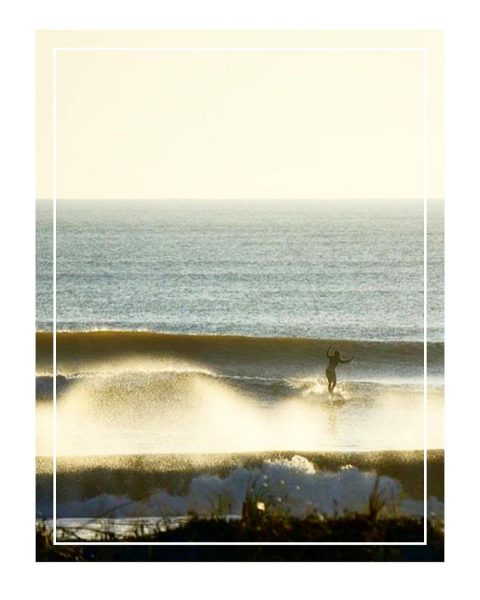
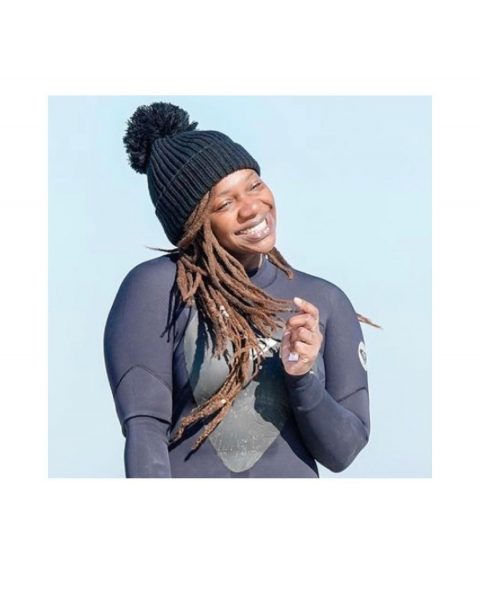
GiGi: So let’s get back to the regular set of programs here. And fast-forward, you’ve had some incredible careers, but they’ve all been intertwined and related and at the end of the day, you actually still do a lot of what you’ve always done. But let’s talk about Native New Yorker. What’s this jam?
Britt: I was passionate about building something of my own. I felt that it was important that it sharpens in my mind every day with each project that I do with each client that I have. My mission for this company becomes sharper and this brought more and more into focus. I was driven by the desire to work with a diverse group of people, to work on projects and with clients who inspired me.
I am very fortunate to have worked in all these different industries to have a very sort of diverse, eclectic network. What I really love to do is bring people together in a substantive way. I love to be surrounded by brilliant, talented people and I love to figure out how I can connect those dots so that those two, three, however many people can go create something incredible and create value, whether they’re creating a new business or whether it’s an introduction that leads to something else. I really love thinking about how people from different industries are the same, who might not otherwise connect, can be brought together to solve a problem or create something new and create value.
GiGi: Out of all the things that have happened, is there one event in particular that has had a significant impact on your paradigm or the way that you view the world?
Britt: Totally. I had another baby this year. So I have a 4-and-a-half month-old son, which I can’t even believe when I say that out loud. I became incredibly focused on my vision for his life and for our lives and for the world. I became very determined that life for him and for all of us and my family and for everyone needed to be good in very simple terms. We need to have a good life and a good life doesn’t mean material things. It means basic, human rights and it just became very clear to me the things that I needed to do and not to do.
I stopped spending time on things, people, thoughts, whatever that was a distraction from my goals. I just became really clear about what world I wanted my children to live in.
I decided I’m going to start saying these things out loud. Saying how I feel out loud and taking advantage of that moment. And I have the opportunity to say what I really feel now. And whether you agree or not, like you have to look at me, I’m allowed to speak, and I’m going to take advantage of that opportunityIt’s not, how are we going to survive this—we’re going to survive—it’s how are we going to thrive?

